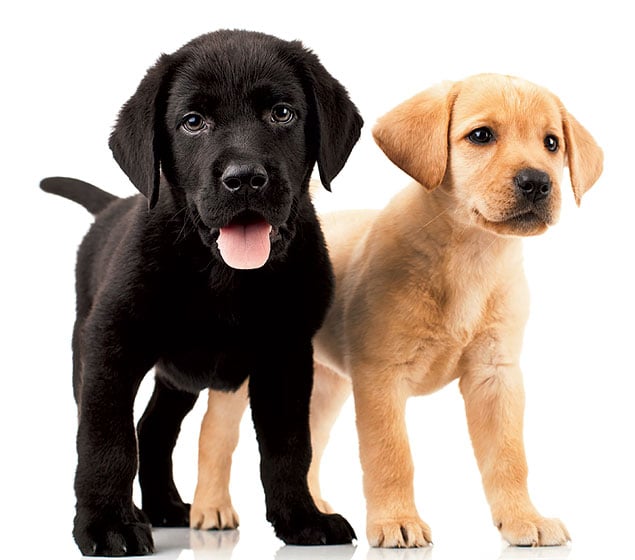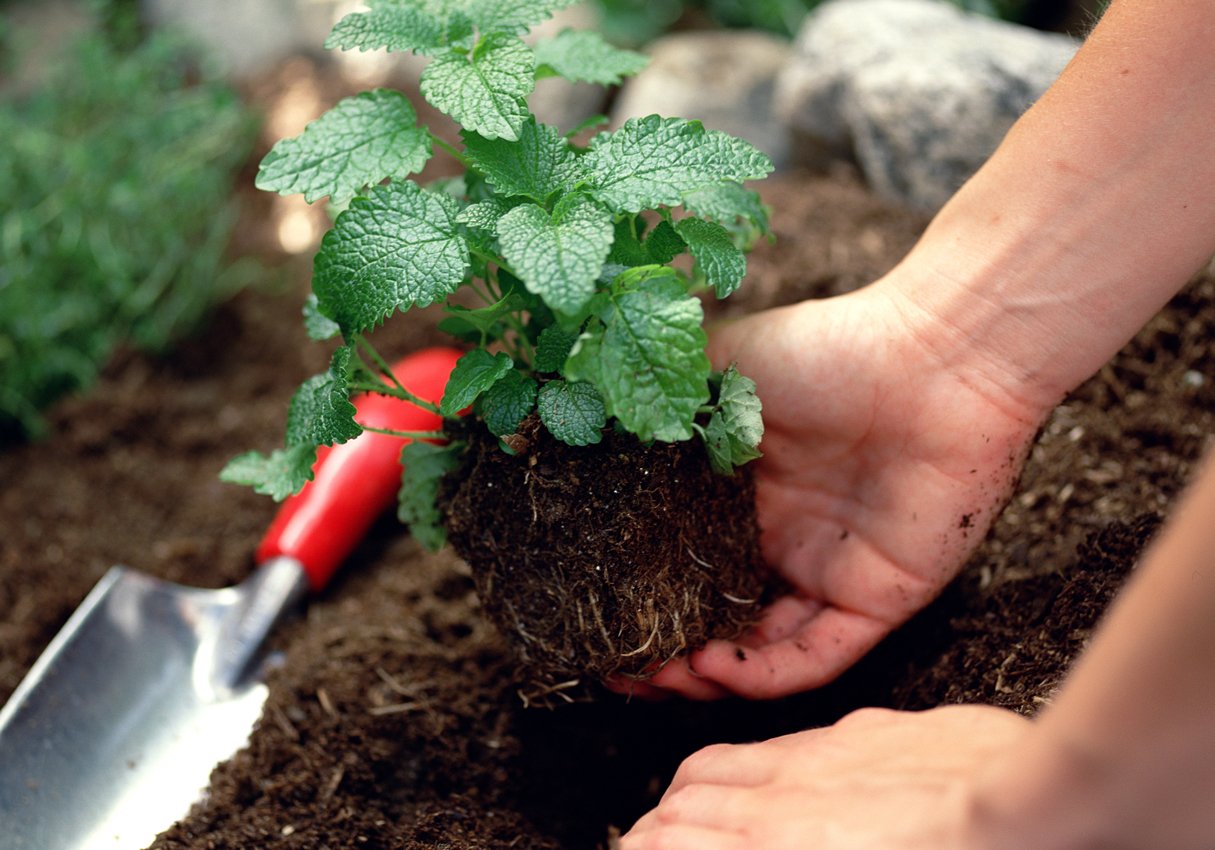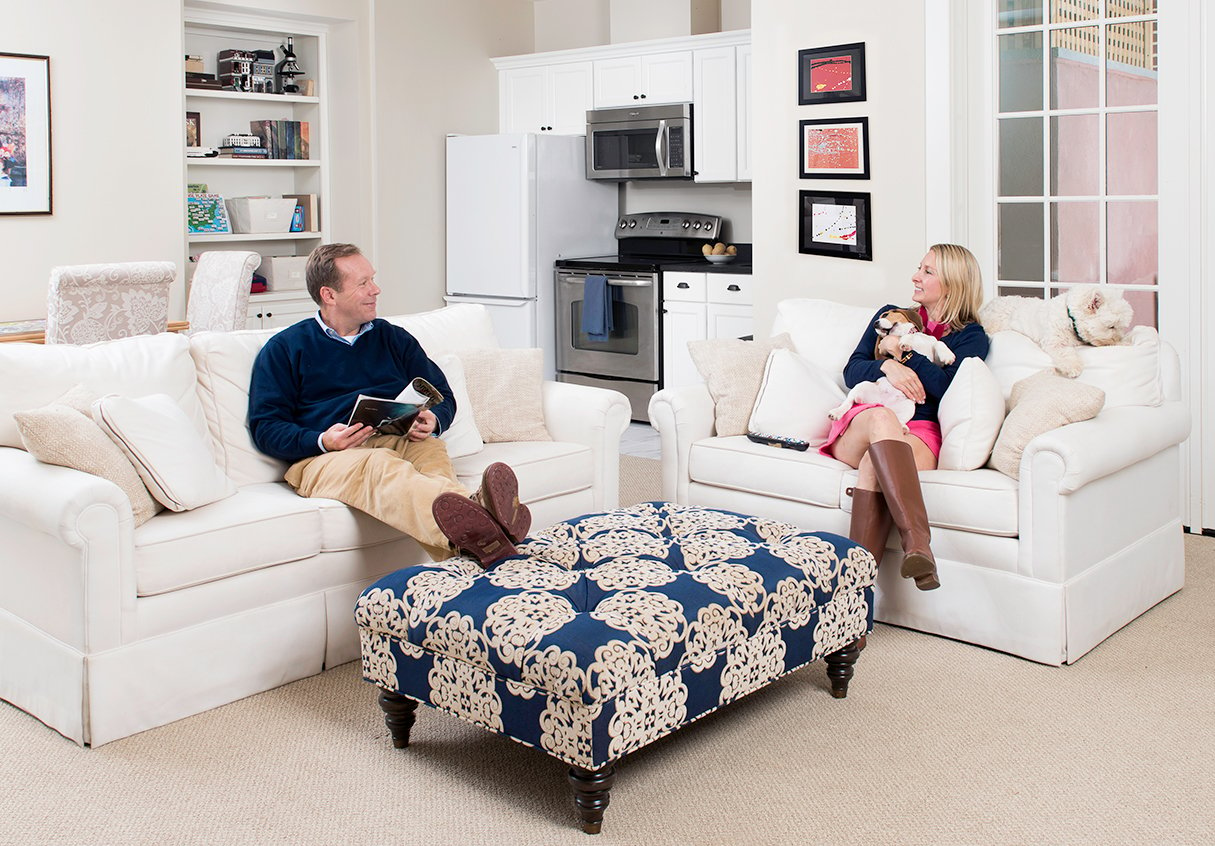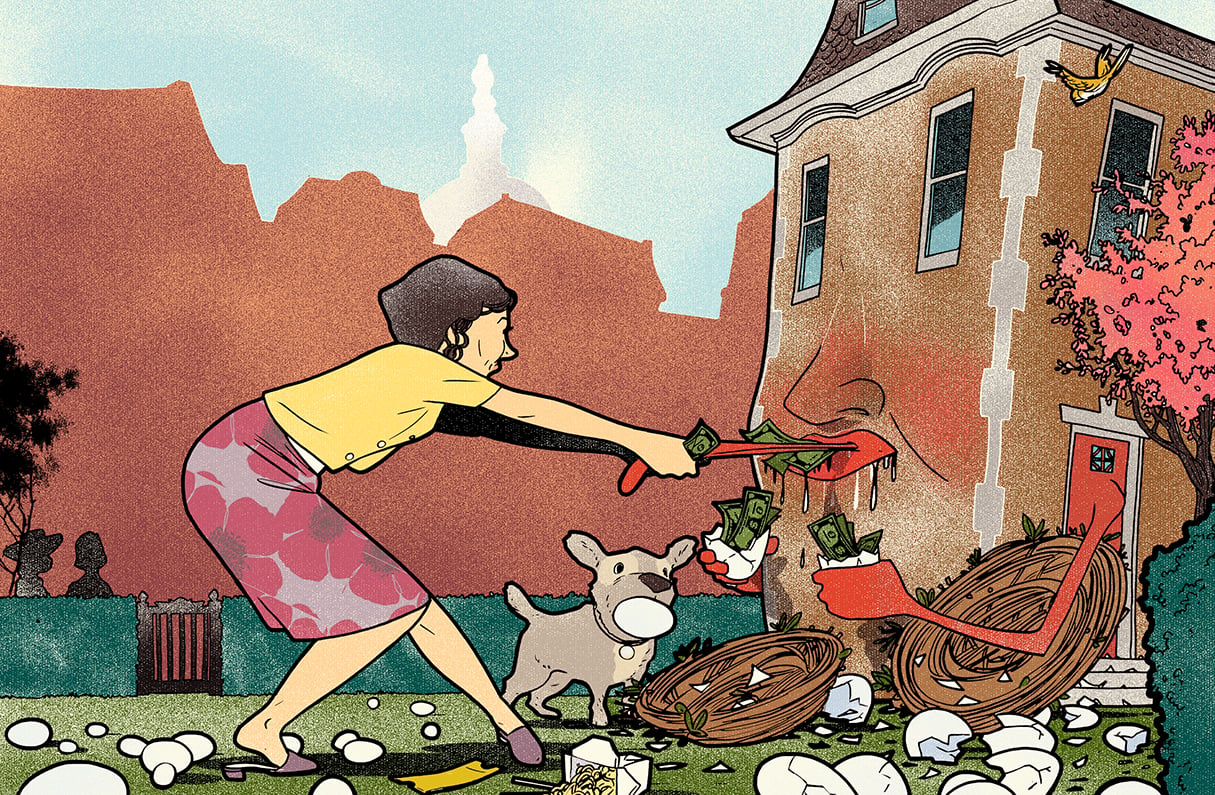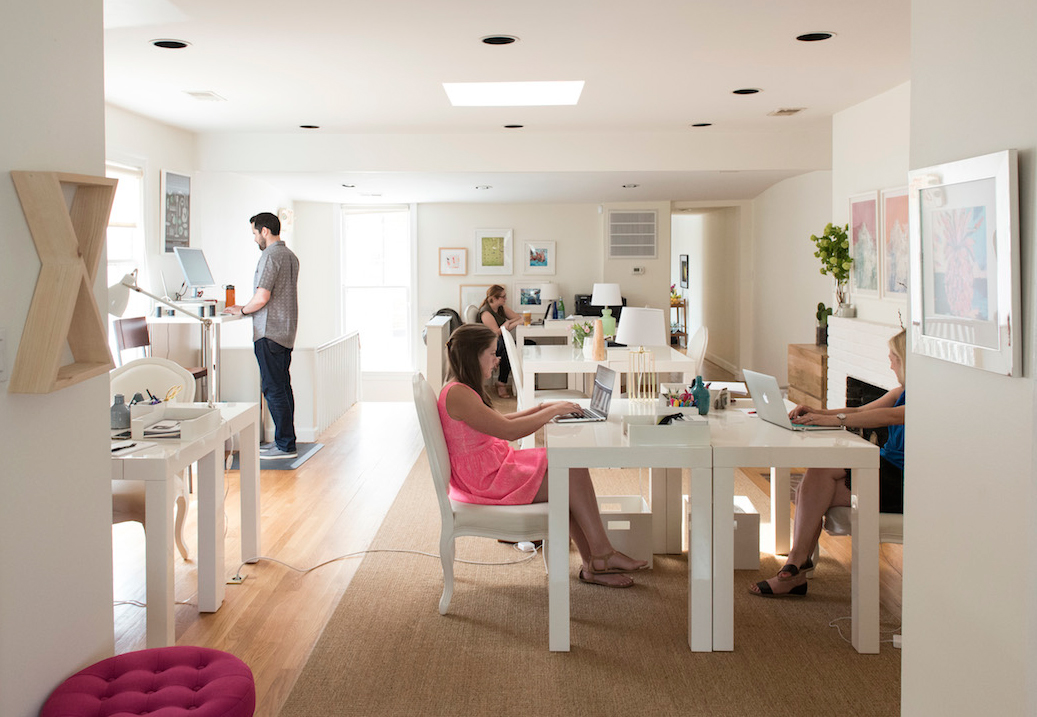It’s a good thing puppies are so cute—because they’re also
exhausting. For a puppy, every day is a chance to explore, grow, and get
into a new mess. Owners had better know how to keep up. With the help of
Heather Morris, dog trainer and owner of DC’s Spot On Training, we’ve
compiled a puppy’s typical daily routine. (We didn’t schedule cuddles, but
those should happen throughout the day, too.)
■ 7:30 am—Wake up and go potty
“A general rule of thumb is a dog can hold its bladder one hour
for every month that the dog is old,” says Morris, who has trained dogs in
the area for more than nine years. Puppies are generally adopted at eight
weeks, meaning they need to go to the bathroom every two
hours.
■ 7:45 am—Breakfast time
Puppies six months and younger should eat three meals a
day.
■ 8:05 am—Potty break
Puppies need to go to the bathroom within 20 minutes of eating
and drinking in the morning.
■ 8:30 am—Alone time
When owners go to work, they should confine puppies to a
comfortable-size crate or a designated area with a bed, and spaces to play
and potty. Puppies with access to the entire house are sure to get into
trouble—even danger.
■ 11:30 am—Dog-walker visit number one
A puppy needs a lot more attention than an adult dog, so owners
who work all day and can’t let the young animal out should schedule two
daily visits from a dog walker. That person should also feed the puppy a
midday meal.
■ 3:30 pm—Dog-walker visit number two
When puppies are six to eight months old, one daily visit from
a walker is usually sufficient.
■ 5:30 pm—Reunion!
There’s no happier time for a puppy than when its owner gets
home from work. Excited pups are more prone to accidents, so you should
immediately take them out for a potty break.
■ 6 pm—Socializing and play time
To grow into happy, confident, well-behaved adult dogs, puppies
need to get out into the world. They should go to parks, meet other
canines and people, and explore the neighborhood. Obedience classes are a
good opportunity for socializing, too.
■ 7 pm—Dinnertime
■ 7:20 pm—Potty break
■ 9:20 pm—Potty break
When they relieve themselves outside, puppies should be
rewarded. Positive reinforcement—such as treats, praise, and play
time—goes a long way.
■ 11 pm—Potty break before bed
■ 1 am to 7 am—Late-night breaks
New puppy owners who think they’re going to get a full night’s
sleep are in for a rude awakening—literally. Puppies usually need to make
at least a couple of late trips to relieve themselves.
This article appears in the November 2012 issue of The Washingtonian.
Read more
Things to Know About Getting a Dog

